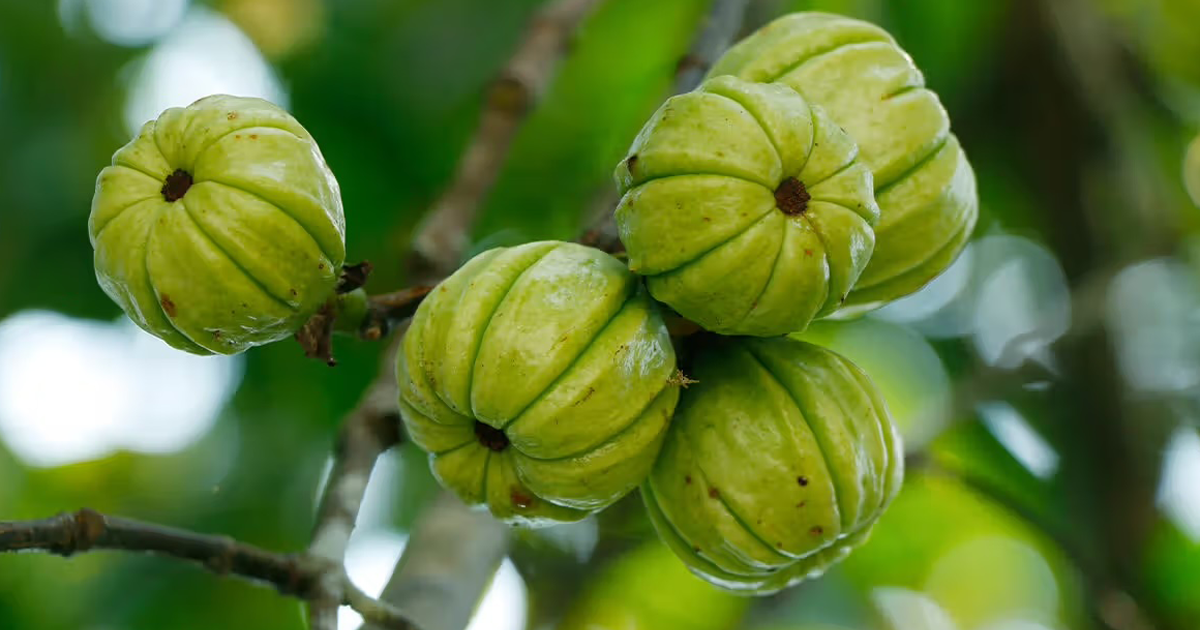
We assume you already know that garcinia cambogia is a tropical fruit that has gained popularity as one of the key ingredients in effective weight-loss supplements.
While it contains various bioactive compounds, the one that has been the focus of numerous studies is the hydroxycitric acid (HCA) found in its rind.
How Does Garcinia Cambogia Work in the Body?
Garcinia cambogia's proposed mechanism of action revolves around its active ingredient (HCA), which inhibits an enzyme called citrate lyase. Since this enzyme plays a role in fat production in the body, blocking it reduces the formation of fat tissue.
At BELDT Labs, we believe that everyone should make informed choices about the dietary supplements they take. In this article, we'll share what we've learned from researching the garcinia cambogia fruit before using it in some of our products.
You'll learn about its benefits, potential side effects, safety, proper use, and what to expect.
Garcinia Cambogia and Weight Loss
Besides its most active ingredient, garcinia cambogia is a source of amino acids, benzophenones, xanthones, and flavonoids. These compounds may offer additional health benefits and improve athletic performance.
Here, we'll only discuss how garcinia cambogia products promote weight loss.

Benefits of Garcinia Cambogia Related to Weight Loss
As we mentioned, HCA primarily contributes to weight loss by inhibiting the citrate lyase. This enzyme plays a pivotal role in converting carbohydrates into fatty acids, a process known as de novo lipogenesis. In other words, the HCA contained in garcinia cambogia impacts the conversion of carbs into fats, thereby reducing fat accumulation in the body.
Garcinia cambogia supplements are also known as effective appetite suppressants, which can benefit those who want to control their food intake. The HCA in the fruit is thought to increase serotonin levels in the brain. High serotonin levels improve mood and reduce the urge to eat as a response to emotional triggers. This appetite-suppressing effect contributes to a lower calorie intake, making it easier to lose weight.
Moreover, our research shows that garcinia cambogia extract increases fat oxidation, meaning it helps the body use more fat for energy. This increased fat-burning capability can complement a healthy diet and exercise routine, supporting one's weight loss journey.
While more human studies are needed to fully understand the effects of garcinia cambogia, its benefits for those trying to reduce body weight are promising.
Potential Side Effects of Garcinia Cambogia
Like all thermogenic supplements, those containing garcinia extract may have side effects. While researching the web, we found occasional reports of mild digestive issues such as diarrhea, constipation, and nausea.
There have been concerns about hepatic toxicity, as some cases of liver damage have been linked to the use of garcinia cambogia supplements. However, these cases involved garcinia cambogia combined with stimulants or prescription drugs.
Another possible side effect is serotonin toxicity when garcinia cambogia is taken with other medications that affect serotonin levels. This can lead to symptoms like confusion, rapid heart rate, and high blood pressure.
The risk of adverse effects can vary based on individual health factors, dosage, and duration of use.
That's why we always emphasize that individuals with existing health conditions or those taking medications should consult a healthcare professional first.
Are Weight Loss Supplements with GC Safe?
Garcinia cambogia is generally considered safe for healthy individuals when used as directed. However, the FDA does not regulate dietary supplements like pharmaceutical drugs. Thus, evaluating the supplement's quality and purity is essential to avoid potential health issues.
We advise looking for the following hallmarks to identify a quality supplement:
» Contains between 50% and 60% HCA
» Made with a pure and simple formula
» Manufactured in a GMP-certified facility
» Offered by a reputable company
Taking Garcinia Cambogia Supplements
Now that you're more familiar with this natural stimulant, we'd like to give you some recommendations on how to use it and provide you with clarity on what to expect.

Of course, we can only speak with certainty about our own product, which is part of the BELDT Labs Bedrock Series.
It's called STAVE, and we’ve done everything necessary to ensure its safety and effectiveness. STAVE is a non-GMO, gluten-free product, and the garcinia cambogia extract is standardized to 50% or 500 mg of hydroxycitric acid (HCA) in each capsule.
Still, answering some questions our customers typically ask will help you make better decisions.
When is the Best Time to Take Garcinia Cambogia?
The best time to take garcinia cambogia supplements is 30 to 60 minutes before meals. This timing helps maximize the supplement's appetite-suppressing effects, as it allows the hydroxycitric acid to activate in your body before you start eating.
How Much Garcinia Cambogia is Safe Per Day?
The recommended safe dosage of garcinia cambogia supplements is typically between 500 mg to 1500 mg of HCA per day, divided into three doses taken on an empty stomach. However, it's important to consult a healthcare provider to determine the appropriate dosage for individual health needs and conditions.
Will Garcinia Cambogia Keep You Awake?
Garcinia cambogia is not known to have stimulating effects that would keep you awake. However, individual reactions can vary, so it's best to monitor how your body responds when taking GC supplements that promote weight loss.
Can You Drink Coffee with Garcinia Cambogia?
Yes, you can drink coffee while taking garcinia cambogia supplements. However, since both coffee and garcinia cambogia affect metabolism and energy levels, it is recommended that you consider your tolerance.
When Not to Take Garcinia Cambogia?
It is advisable to avoid taking garcinia cambogia supplements if you are pregnant, breastfeeding, have liver conditions, or are taking medications that affect serotonin levels, as it may lead to adverse effects.
How Long Does It Take for Garcinia Cambogia to Work?
Garcinia cambogia may start to show effects within a few weeks. Still, noticeable weight loss results typically require consistent use over several months, combined with a healthy diet and regular exercise. Individual results can vary based on factors such as metabolism and lifestyle choices.


